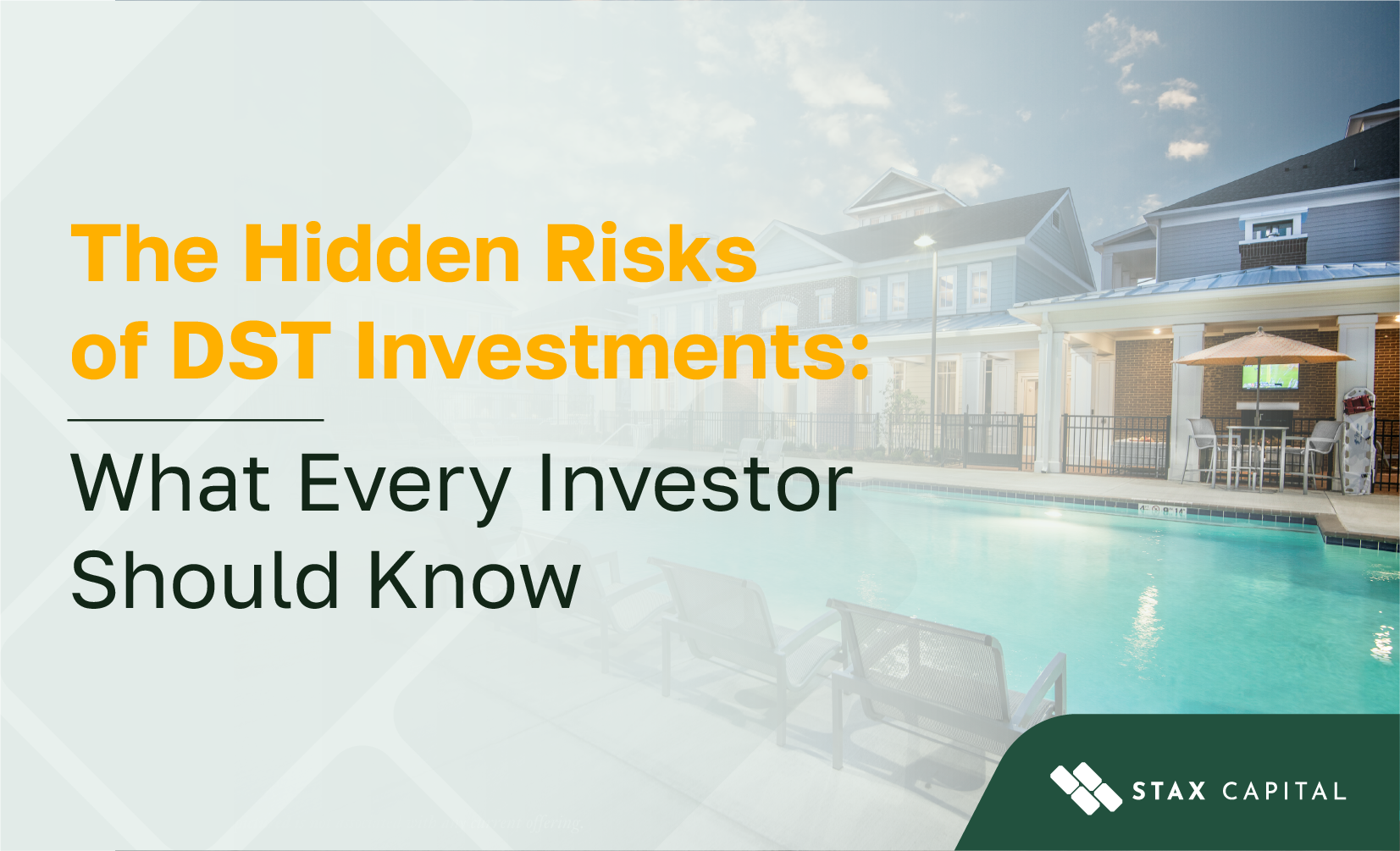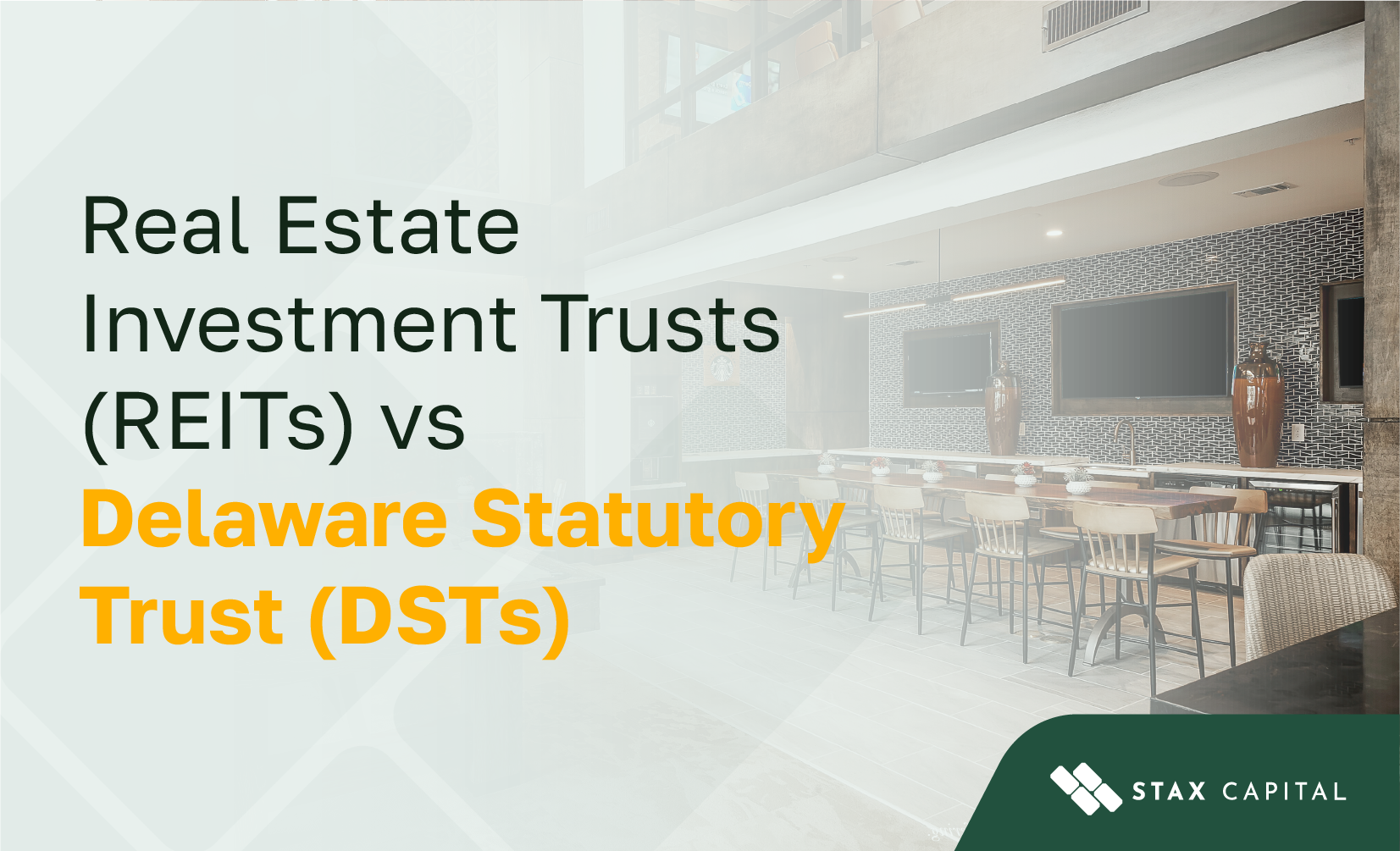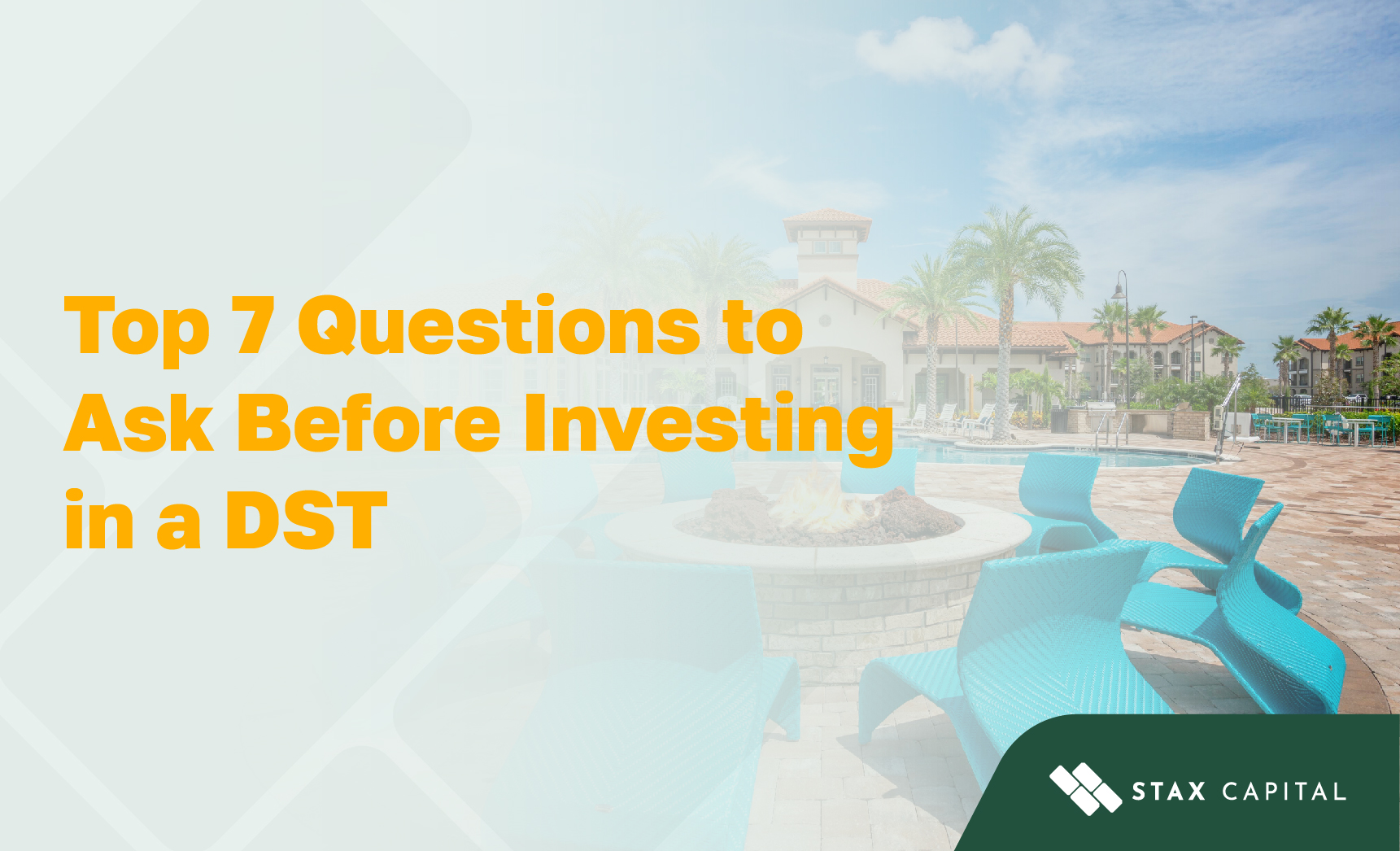Potential Benefits of Delaware Statutory Trusts for Investors

As an investor looking to diversify into real estate or expand your investments in properties, you may be wondering what the benefits of DST (Delaware Statutory Trusts) might be.
Investing in real estate involves active responsibilities to ensure properties are well maintained and managed. It also requires direct involvement to ensure that expected rental returns are monitored and realized.
Delaware Statutory Trusts as an investment vehicle may provide ways to gain possible benefits of alternative real estate investments while being less involved in time consuming management. Here’s what you need to know about DSTs and how the benefits of DST may be valuable to you as a property investor.
What is a Delaware Statutory Trust (DST)?
A Delaware Statutory Trust (DST) is a legal entity usually formed for business investment purposes and is used as an instrument through which property is purchased and managed for the beneficial interest of owners.
It is considered a separate legal entity from its beneficial owners, under the Delaware law. This offers a limited liability status to the investors who own beneficial interest in the trust, one of the notable benefits of Delaware Statutory Trusts.
How Do DSTs Work?
The operations of a DST would generally involve individual duties in the capacity of a sponsor, lender, trustee(s), managers, interest owners etc. A DST is usually bound by a governing instrument such as a trust agreement which would categorically specify any rights, obligations, liabilities or management responsibilities for all parties involved, as well as the general business conduct and underlying governance of affairs of the trust.
As an investor and beneficial owner in a DST, you would have undivided beneficial interest in the property or properties of the statutory trust. Except otherwise stated by a trust agreement, you become entitled to receive income and distribution from the DST. The profits and losses you would share from the statutory trust would be proportionate to your total undivided beneficial interest in the DST.
DSTs are often managed by a trustee or trustees on behalf of the beneficial owners who have interest in the trust property or properties. Usually, the trustee is responsible for distributing cash less any reserves to you as an investor based on your interest in the DST.
For federal tax purposes, the classification of a DST as a business or a trust is dependent on the power awarded to trustees to carry out activities such as acquiring and disposing of property, making structural modifications to the property, renegotiating leases or debt, investing cash for profit or collecting and distributing income.
One of the most popular benefits of Delaware Statutory Trusts is that investments through interests in the trust may qualify for a tax-deferred like-kind exchange (subject to all other conditions and requirements being met).
Who Qualifies as an Accredited Investor for DSTs?
In order to access possible benefits of Delaware Statutory Trusts, you have to be an accredited investor. As an accredited investor, you can purchase interest in the DST directly or by depositing your 1031 exchange proceeds into this investment vehicle.
An accredited investor may be an individual or entity identified to be financially sophisticated and authorized to invest in unregistered securities or private capital markets that are usually deemed to carry more risks than traditional investments. Classification of an accredited investor is based on annual income, net worth, asset value and/or professional investment knowledge.
The Security Exchange Commissions (SEC) considers accredited investors as individuals with income exceeding $200,000 for two most recent years and expected to at least remain in this income band for the current year; for couples with joint income, this amount is $300,000.
Also, individuals with single or joint net worth (for couples) exceeding $1,000,000 can be classified as accredited investors. Your net worth is considered as the fair market value of all assets excluding primary residence minus total liabilities excluding primary residence mortgage up to its estimated fair market value.
For entities, an accredited investor status may be awarded to certain organizations with total assets in excess of $5,000,000. Such organizations may include but are not limited to banks or any savings and loan association, a registered broker or dealer, an insurance or investment company or a business development company. It could also be an entity owned completely by accredited investors.
In 2020, the SEC modified its classification of accredited investors to include individuals who have defined measures of sufficient experience and professional knowledge or possess certain recognized qualifications and certifications. This increases the pool of investors who may qualify to invest in unregistered assets and have access to the benefits of Delaware Statutory Trusts.
Benefits of Investing Through Delaware Statutory Trusts
There are potential benefits of Delaware Statutory Trusts. If you are an accredited investor, here’s how investing through DSTs may be beneficial for you.
The 1031 exchange: One of the major benefits of Delaware Statutory Trusts is that they qualify as 1031 like kind exchanges for property investment. The 1031 exchange allows investors to defer capital gains if they invest in like kind properties, , highlighting additional Delaware trust benefits..
With DSTs, there is the potential to locate properties that are like kind within the given 45 days rule, also, it may be easier to exchange and transfer ownership of a DST property investment within 180 days from the sale of your replaced property.
Freedom from property management: Properties purchased for real estate investments usually require periodic maintenance and management. Taping into the benefits of Delaware Statutory Trusts can take away the pressures and hassles of dealing with property management issues directly.
A trust agreement would normally delegate the property management responsibility to trustees or an assigned manager who oversees that the trust’s properties are professionally managed and maintained.
Institutional quality investments: Investors are allowed to purchase fractional units of a much larger scale investment property through DST investments. This offers access to institutional quality property investments that would ordinarily not have been accessible due to cost and other complexities. When considering the benefits of Delaware Statutory Trusts, being able to invest in institutional properties at low minimums – usually $25,000, is a huge plus.
Potential passive income: DSTs can be effective for wealth management when utilized correctly. With this investment vehicle, you may have the opportunity to build wealth through real estate properties. DSTs could potentially provide passive income for investors who need to take a step down from active involvement in real estate investments. Also, the possibilities for wealth generation make up one of the important benefits of Delaware Statutory Trusts.
Portfolio diversification: One of the benefits of Delaware Statutory Trusts is, it offers an opportunity for portfolio diversification. When you meet the accredited investor requirements, DSTs could be your introduction into real estate investing, giving you a wider range of investment possibilities in a different asset class.
As an experienced property investor who also meets the requirements of an accredited investor, through DSTs you could have access to multiple property types and ranges.
Flexibility: Except if the governing instrument of a statutory trust specifies otherwise, the beneficial interest you purchase in a DST can be easily transferable. You can freely transfer your ownership to a different party after all requirements have been met and fulfilled.
Lenders who provide financing for the properties under the trust deal directly with the trust and not with investors, therefore, you do not need to qualify for a loan under a DST. This makes it relatively easier to access funding and financing.
Also, when you become entitled to receive income distribution from a DST, you would be entitled to all remedies that a creditor of the DST has in terms of the distribution.
Limited Liability: Given its separate legal identity status, owners and trustees have limited liability as regards properties invested. What this means for investors is that they do not have interest in any specific property and creditors are not able to seek remedies on DST properties.
As an investor, the potential benefits of Delaware Statutory Trusts may include being protected under a limited personal liability similar to that of private corporations’ stockholders.
Are There Any Risks Involved in DST Investments?
The potential benefits of Delaware Statutory Trusts are usually accompanied with possible risks. Similar to any other investment platform or asset, there may be risks involved in DST investments. The major downsides to DST investments include having minimal or no control in investment or management decisions, fewer opportunities to sell off investment ownership interest due to an illiquid market, and no guarantee of investment principal or returns.
It is recommended that investors who want to explore the potential Delaware trust advantages utilize the expertise of professionals such as financial advisors and tax experts.
Key Takeaway on Delaware Statutory Trusts
DSTs can be leveraged as alternative investments that diversify investment portfolio. While this investment platform may provide a huge potential for benefits, you need to also consider the risks and complexities that come with DST investments. The benefits of Delaware Statutory Trusts include the opportunity to invest in like kind exchange properties, flexibility of property investment and limited liabilities associated with the trust.
Stax Capital specializes in alternative investments through Delaware Statutory Trusts, providing you opportunities to manage your wealth and explore capital gains tax deferral options available via the 1031 like kind exchange vehicle. The team at Stax Capital partners with you to explore potential benefits of Delaware Statutory Trusts.



Share: